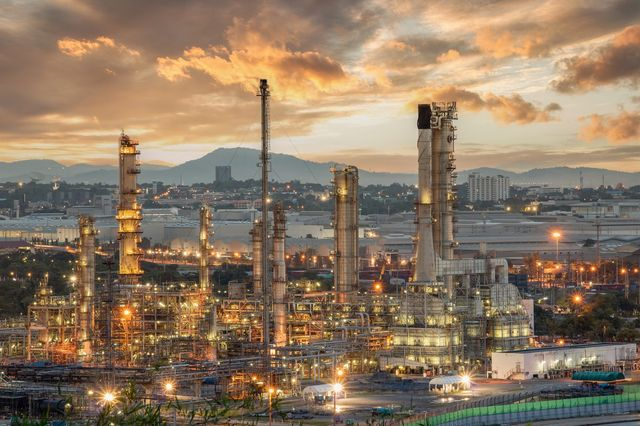Implementation begins for Ukraine’s energy supply via Greece
Διαβάζεται σε 4'
A successful auction enables use of the Vertical Corridor. The gas will originate from Revithoussa and reach Ukraine.
- 25 Νοεμβρίου 2025 11:56
A significant step in implementing the new energy doctrine—based on replacing Russian gas that previously supplied Central and Southeastern Europe with equivalent quantities of US-origin natural gas—was achieved through yesterday’s auction for the so-called “Corridor 1”.
This concerns the supply of Ukraine to cover part of its winter needs, with liquefied natural gas starting from Revithoussa (where it will be regasified) and reaching the war-stricken country via pipelines using the Vertical Corridor.
Specifically, according to the system operators, “contracted quantities in the auction for Corridor 1 of the Vertical Corridor amounted to 13.68 gigawatt hours per day”.
The total available capacity was 23.18 GWh/day, meaning more than 50% was booked by the market. By comparison, in the previous auction, interest had reached 30%, indicating a rapid increase in commercial availability.
This development gains added importance as the auction is the first after the agreement between DEPA and Naftogaz for the supply of American liquefied natural gas (LNG).
In the EU’s new strategy for full independence from Russian gas and, instead, the procurement of LNG from across the Atlantic, Greece aims to play a pivotal role, as it has the necessary infrastructure to serve as the geographic hub receiving US LNG and channeling it to the countries of Southeastern and Central Europe.
“The EU and Greece have always supported every effort made to cease hostilities and open a window of peace” in Ukraine, stated the Minister of Foreign Affairs, Giorgos Gerapetritis. He added that “last week, once again, Greece stood by Ukraine, securing its energy sufficiency for the coming period through major agreements signed during President Zelensky’s visit to Athens.”
Τhe Vertical Corridor
The Vertical Corridor is essentially an energy corridor linking Greece–Bulgaria–Romania–Moldova–Ukraine and their Transmission System Operators (TSOs), namely DESFA (Greece), ICGB AD (Greece–Bulgaria), Bulgartransgaz (Bulgaria), Transgaz (Romania), VestMoldTransgaz (Moldova), and GTSOU (Ukraine). It is effectively a unified chain of natural gas pipelines and interconnections between these countries and their operators. Slovakia (Eustream) and Hungary (FGSZ) are also expected to join the initiative.
Last May, the Minister of Environment and Energy, Stavros Papastavrou, visited Kresna in Bulgaria, where—alongside Bulgarian Energy Minister Zheko Stankov, Bulgarian Prime Minister Rosen Zhelyazkov, and Hungarian Foreign Minister Péter Szijjártó—he inaugurated the construction of a major branch of Bulgaria’s natural gas transmission network, as part of the Vertical Corridor.
This key project, expected to be completed within the first quarter of 2026, is linked to expanding capacity from Greece to Bulgaria (via the Sidirokastro interconnection point) and from Bulgaria to Romania (via the Kresna interconnection point). It forms a core part of the Vertical Gas Corridor and supports the goals of diversification and improved supply security.
A vital component of the Vertical Corridor is the Greece–Bulgaria–Romania axis, complemented by two additional branches: the western branch (Romania–Hungary–Slovakia) and the eastern branch (Romania–Moldova–Ukraine). The initiative includes the TSOs of all these countries.
Within this framework, ATLANTIC – SEE LNG TRADE S.A.—in which the AKTOR Group participates through its subsidiary Aktor Energy S.A. with 60% and DEPA Commercial holds 40%—signed a long-term sale and purchase agreement (SPA) with US company Venture Global Inc. for the supply of significant quantities of LNG from the United States.
Following the latest developments, the Vertical Corridor project is moving to its next stages, with the involved TSOs signing, within the P-TEC ministerial conference, a joint letter to national energy regulatory authorities requesting approval for launching two new cross-border capacity products—“Corridor 2” and “Corridor 3”.
The “Corridor 2” product begins at the Amfitriti interconnection point in DESFA’s network, crosses the Greece–Bulgaria interconnector (ICGB), and continues through the Trans-Balkan Corridor. The “Corridor 3” product starts at the ICGB–TAP interconnection point and follows the same route. The goal is regulatory approval by April 2026 and full technical system readiness by the end of 2027.







































